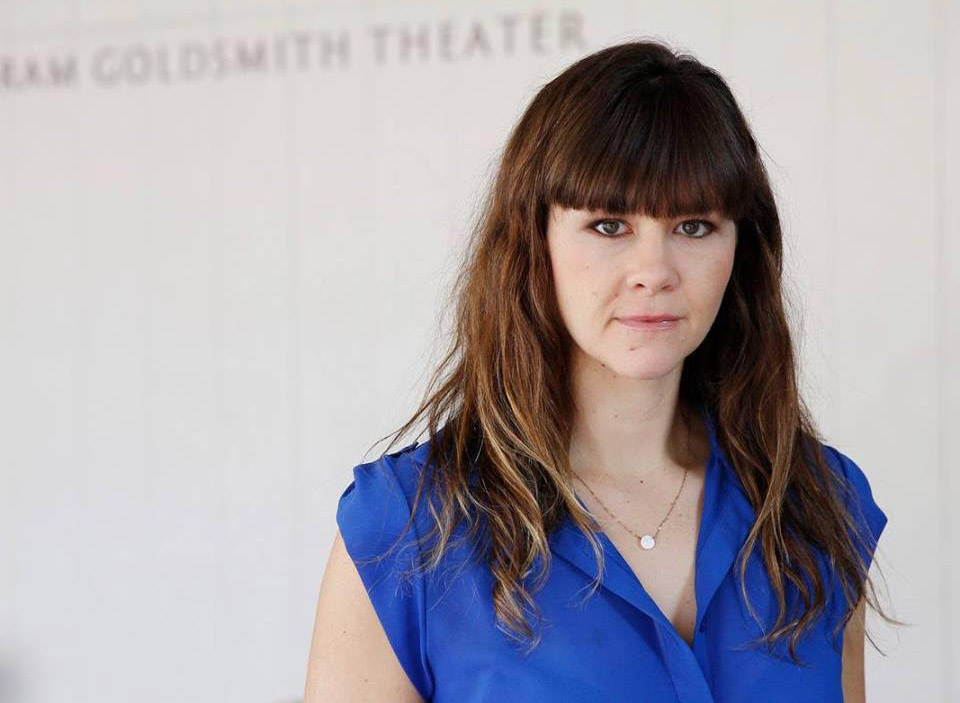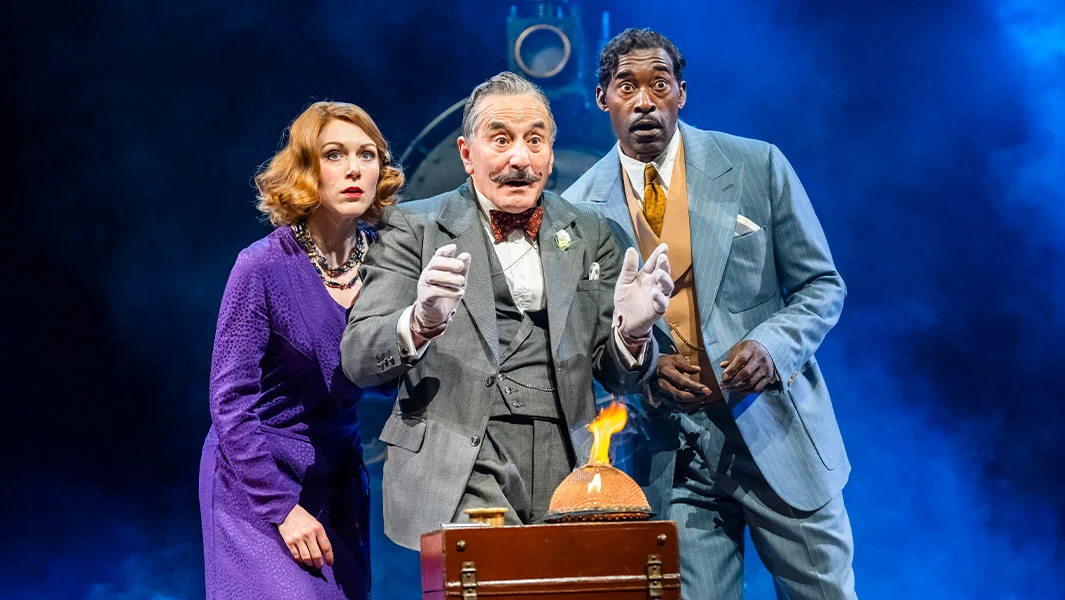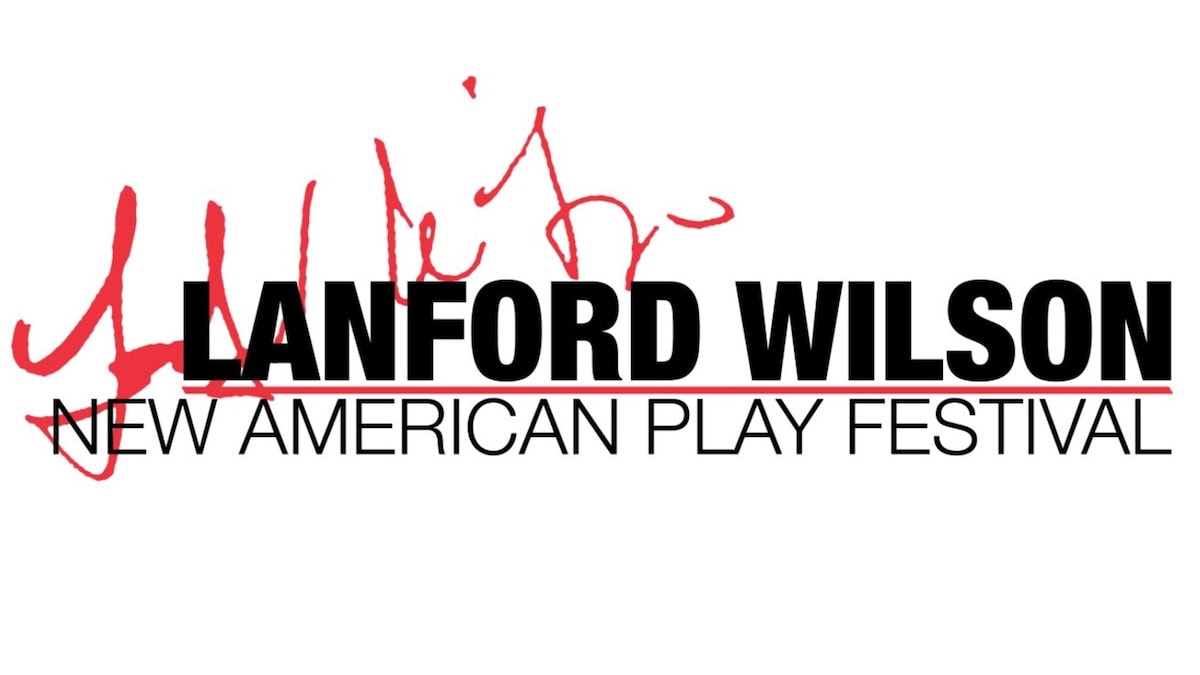
Imagine you are the only playwright in the world. Bekah Brunstetter wants you to tell yourself: “Wow. That is so cool. I can’t believe I rediscovered playwriting.” Keep this in your pocket when you’re at the grocery story, when you realize your protagonist is actually Peggy from Mad Men, when your finger can’t seem to detach from the “delete” button and the only thought on your mind is how many people have written this better. Bekah knows how easy it is it is to doubt yourself, your talent, your voice. She wants you to remember and forget and talk to yourself. You should listen to her.
Bekah has written enough plays to fuel a forest fire and she’s busting her day job so that, by night, she can light up the sky. What Bekah calls her day job, however, is what so many writers set their dreams sights on: Bekah is fresh off her three-season gig writing for ABC Family/Freeform’s hit drama Switched at Birth, and is moving over to STARZ to write for the new series American Gods, based on the Neil Gaiman novel.
The silver screen wasn’t always in Bekah’s eyeline. After earning her MFA, Bekah joined Play Group at Ars Nova in New York City, where, in between workshops and readings, she paired up with a theatre agent from William Morris Endeavor. She wanted to pay off her student loans. WME wanted to create a package. The solution lay in television: are you interested?
Bekah was not the kid who grew up on Saturday cartoons. She hails from conservative North Carolina. She has brothers in the military, a Baptist church to spend her Sundays. TV may not have been in Bekah’s backstory, but the cards were certainly stacked. Her theatre agent tied her to a TV agent and manager, and, twice a year, she flew from New York to Los Angeles, where she took meetings and shook hands and told strangers all about her art. At first, she didn’t understand why or who or even what, but, eventually, it started to make sense. Television is a style of storytelling that thrives on formulas and commercial breaks, and playwrights… well, playwrights don’t think like that. They think outside the procedure. They are more concerned with character than cliffhanger, form than formula, and Hollywood loves them for it.
Many playwrights are staffed as writers on shows immediately, but Bekah landed her first gig as a writer’s assistant on MTV’s I Just Want My Pants Back. “I’m not good at pretending to know what’s going on,” Bekah says, and starting as an assistant gave her a minute to breathe, to learn the ropes of a writer’s room: the circle of creatives, the whiteboard at the center, the constrictions of structure and act breaks, the promise of a cliffhanger. TV is mechanical, stemming from the part of the brain that screams structure ;whereas, for Bekah, theatre comes from the heart, the subconscious. In what world could she imagine writing a play in a group? Sitting with once-strangers and breaking up scene work, transitions. It’s not just a different process, but a different way of thinking.
And when she takes that way of thinking back to her heart, her subconscious, it only makes her playwriting more efficient. Before working in television, Bekah’s process was simply and fully immersing herself in the world of her play. While she knows to protect the art of that, working in the structured-mindset of television forces her to think of consequences: how does this action propel the scene? How does this scene move the story? The best writing may be rewriting, but rewriting is the most tortuous part of writing. Learning how to craft story for television—it saves her a lot of that stress.
After a season as an assistant, Bekah was then staffed on MTV’s Underemployed before moving over to Switched at Birth, a drama that explores the complicated relationship between two sudden-sisters when they discover they were switched at birth (source: flavorwire). Bekah describes the show as a 24-hour play festival: a constant whirlwind of writing, breaking episodes, spotting the big ideas, answering the energy of production. But the most important rule of writing for this show, Bekah realized, is the same rule she picked up from playwriting: be honest.
Bekah wrote Switched at Birth truthfully and personally for three years. Sometimes it was that final hour of a day-long play festival, and other times it was volleyball practice: she was part of the showrunner’s team, part of pulling off her play. Some showrunners are hard to crack. Others, like Lizzy, are easier to read—and echo. For Bekah, Switched at Birth was easy to get into: not super stylized, just honest dialogue. However, even if you understand the tone of the showrunner’s writing and you learn to write like that, most of the time, your boss will rewrite your work. “But usually,” Bekah says, “you’re like ‘that’s amazing—better than what I did.’” The job of a staff writer is to construct a draft that sets up the showrunner for the volley. Yes, you need to invest in it and write earnestly, but once you have, let it go. Don’t take it personally when your boss makes changes. That’s what bosses do. Bring yourself to it, and then remove yourself. Remember, this is why you have your plays.
After working on TV all day, Bekah takes her laptop to a nearby bar, where she orders a glass of wine and puts on her headphones, letting the Baptist hymns from her childhood takes her out of Kansas City, to the headspace of the small town world of a play she’s writing. ACT I, SCENE I: Southern baker turns down a gay couple who asks her to make their wedding cake. Bekah knows how easy it is to villainize the conservative angle; she is writing to make the baker sympathetic, compassionate. Conservative values are a topic Bekah knows well—between her upbringing and her day job—and as long as she writes from her own truth and experience, she can portray that perspective in a way that is tangible, understandable. Sometimes it’s hard coming home after a long day and finding that spark in you that is ready to write. But in setting deadlines and assigning chunks of time, Bekah treats playwriting as if it were a job. Otherwise, it won’t happen.
Writing for television has given Bekah the freedom to pay her bills, visit friends in Manhattan, be a person out in the world. But keeping up her plays is what makes Bekah want to be a person out in the world. “If you’re not working on your own art, you’re going to lose your mind.” The trick is making it work. It doesn’t have to be one or the other. Each year, perhaps ten playwrights in the world can sustain a living just writing plays. Bekah was once one of them. But now, as a television writer, she can work a few months, save up, and spend the rest of the year writing plays. There are other day jobs out there, but television writing is a way to make a living off skills you already have. Why wouldn’t you do both?
Since moving to Los Angeles, Bekah has continued to run projects in New York and earn commission from South Coast Repertory. The biggest difference, though, is the pace. Instead of cranking out three new plays a year, she’s crafting one. Instead of camping out in an east coast theatre district, she’s discovering pockets of the industry all over Southern California—a writer’s group in Downtown LA’s Center Theatre Group, another in Atwater Village. With so many playwrights moving into television, institutions are popping up to support them. While it may be a tenth the size of the Manhatta
n theatre community, this only makes it more manageable, more accessible to build stronger friendships with people who are making the same decisions and transitions that you are. It’s nice not to feel alone in it.
A lot of Bekah’s ideas are still plays. It’s fun to think about running her own show, especially when there are so many playwright-friendly programs being created. For example, The CW’s Crazy Ex-Girlfriend is a romantic musical comedy-drama, carrying the theatrical premise of a young woman who moves across the country, abandoning her successful career in an attempt to rekindle her high-school relationship. The landscape of television is changing— shows are becoming less formulaic or procedural. Content is taking more chances. Stories can be dark and weird and silly and uplifting, all in one shot. It’s an exciting place in which to be a storyteller.
So forget all of the other playwrights. Forget their voices, but hone yours. Bekah earned her first TV jobs off her plays, but write that original pilot as well. Find something about who you are that is unique to you. Craft that into your sample. Give showrunners and agents and managers your voice, the worlds you create, so that they can understand who you are as a human, as a member of the team, what play you can best volley. Think of it as your name tag, your elevator pitch, your Instagram bio: “Hello my name is… Here is where I’m from. Here is what I think about.” As long as it is personal, you are at your absolute best.
Bekah knows how daunting that is. So in the meantime, put that daunting thing aside and work on a short. Spend a night cranking out a full idea, a full character. And the next day, submit it anywhere you can because you never know who may see it. Build that body of work. Portfolios are important to young writers, and nowadays, it’s easy to make something yourself and put it online. If you have an idea for an epic family drama, create a smaller version of that—a mother and daughter, ten three-minute episodes. Television executives are on YouTube and Vimeo trying to find the next big thing, trying to find you.
And when you’re not doing it on your own, submit, submit, submit. There are so many writing competitions—the Eugene O’Neill National Playwrights Conference (Bekah applied for eight years before getting in), the Princess Grace Award, among others.
Whether you win or not, people are still reading your plays. One year, a reader reached out to Bekah; although Bekah didn’t win the contest, she found another person in her network to collaborate with. Check out Ars Nova, join the “The Official Playwrights of Facebook” group to find submission and festival opportunities. And if you remember to forget everyone else—if you remember that you are the only person in this world writing plays, and writing them right now… then your chances have to be pretty good.
For the rest of our Stage to Screen Series, click here.
For more information on upcoming productions, Homemade Monologues, and Bekah’s opinions on various dresses and breads, please visit www.bekahbrunstetter.com.

Community Theatre: Your Guide to Season Planning

Beyond the Musical: TYA Plays from Concord Theatricals

